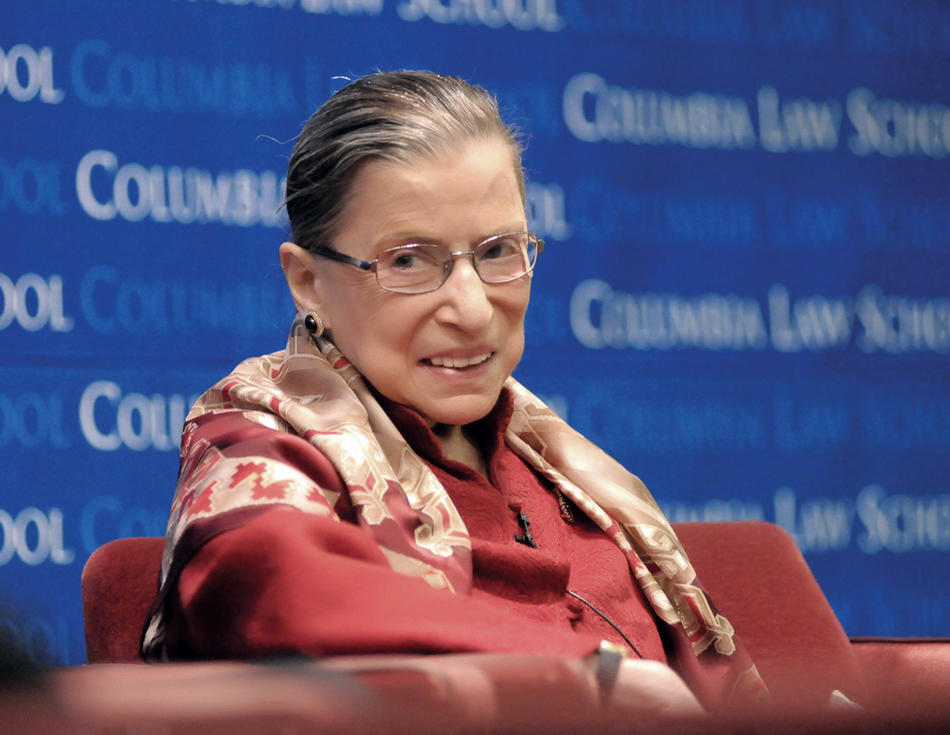Back when she was litigating gender-discrimination lawsuits for the ACLU in the 1970s, Ruth Bader Ginsburg ’59LAW had plenty of strong cases to choose from. There were the teachers fired for being pregnant, the high-school girls barred from a science camp, and the factory workers denied health insurance for their families because a woman couldn’t be considered a breadwinner.
“We saw a steady trickle of these types of cases, which had never been filed before,” Ginsburg remembers. “There was a spirit in the land that said: maybe the way things are isn’t right.”
The US Supreme Court justice, who did pro bono work for the ACLU while teaching at Columbia from 1972 to 1980, returned to Morningside Heights on February 10 for a daylong symposium in her honor. The event, hosted by the Center for Gender and Sexuality Law, commemorated the fortieth anniversary of Ginsburg’s hiring as the law school’s first female tenured professor.
Ginsburg, in conversation with two of her former clerks, Columbia law professors Gillian E. Metzger ’96LAW and Abbe R. Gluck, reflected on her time here teaching courses on gender discrimination, co-authoring the first course book on the subject, and mentoring women’s rights advocates on campus. While teaching at Columbia, she also argued six cases before the Supreme Court, winning all but one.
One of those cases, Duren v. Missouri, surprised many people at the time because it challenged a law that seemed, at least at face value, to grant women a privilege: it made jury duty for them voluntary. Ginsburg, addressing the high court in 1978, insisted that the law’s gender bias was unconstitutional and that it sent a message that women were less competent to serve on juries. Justice William Rehnquist, after listening to her argument, famously remarked: “You won’t settle for putting Susan B. Anthony on the new dollar?” Silently, Ginsburg took her seat. “On the drive home, I thought of a good comeback: ‘No, Mr. Justice Rehnquist, tokens won’t do,’” she said at the symposium, laughing. “Unfortunately, I didn’t say that.”
Ginsburg won the case, which is now considered a landmark of gender-equality law.



